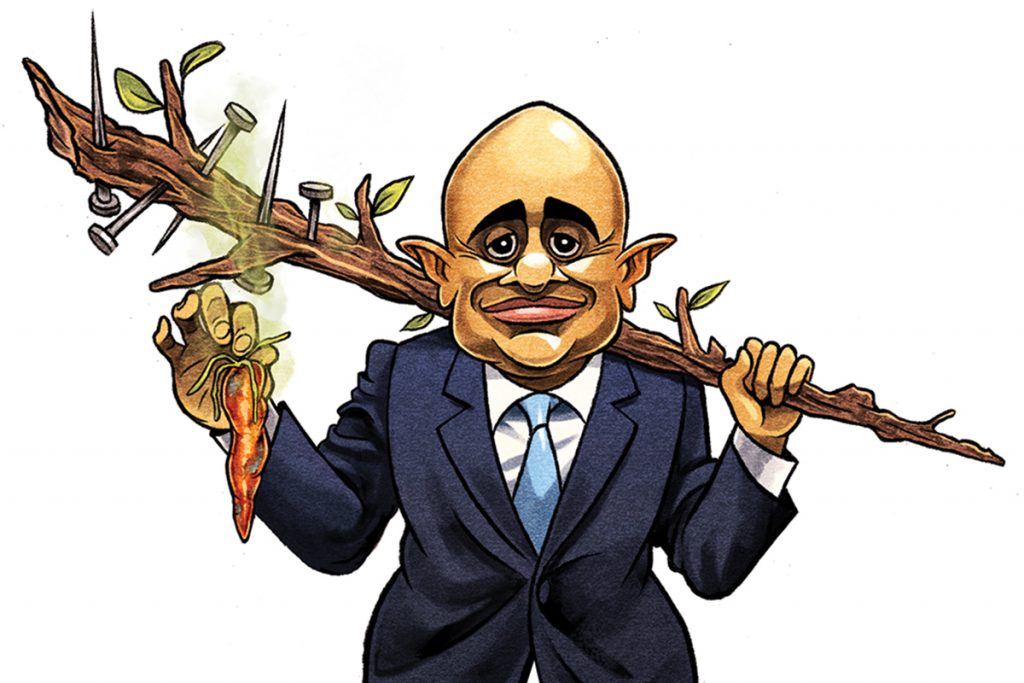The idea that Mr Sunak can scapegoat the GPs, or the Health Trusts, or the Public is laughable. He may try, but confusion will remian in the public, and more anger and violence will be displayed towarss the profession, unless he is honest. Sunak needs to tell the hard truths about the manpower planning being hobbled by politicians over decades. Just as the chancellor has planned ahead for tax reductions before the next election, the Health Minister needs to get the bad news out of the way soonest. Only then can the debate start,
Paul Gallagher reports in the Inews 28th October 2021: NHS staff morale plummets as medics brace themselves for ‘worst winter ever’ – Frontline doctors are calling for a “comprehensive staffing plan” from the Government to solve a crisis which has led to around 100,000 vacancies across the NHS.
Isabel Hardman in the I reports: Does the government want to tackle the NHS crisis, or just dodge the blame for it?
If you’d only listened to the first half of Rishi Sunak’s Budget speech, you’d be forgiven for thinking he was continuing with Gordon Brown-esque levels of spending on the NHS. Healthcare spending up £44bn to over £177bn, the health capital budget “the largest since 2010” and a list of important new hospitals and operating theatres to help the health service deal with its towering treatment backlog. It all sounded very generous.
Only towards the end did we get a glimpse of the Chancellor’s real attitude towards the NHS. He moved into a passage setting out his economic philosophy, asking the Commons: “Now, we have a choice. Do we want to live in a country where the response to every question is: what is the government going to do about it?”
He added that while “we’ve taken some corrective action to fund the NHS and get our debt under control”, he wanted to reduce taxes. In short, this isn’t a government that is going to throw money at every problem. It’s time for everyone else to shape up, too.It’s as if Sunak has taken inspiration from one of his beloved Peloton spinning classes and is hoping that if he shouts enough motivational slogans at public services and businesses, everything will be OK.This is in keeping with the wider mood in government towards the health service. Ministers are agreed that yes, more money is necessary to help deal with the backlog. But they aren’t going to keep throwing cash at the service. The NHS has to modernise and become more efficient: this isn’t a problem the government can solve purely with funding.
It’s why there is a retired general, Sir Gordon Messenger, carrying out a review into the management of the service. It’s also why Health Secretary Sajid Javid has set up something called the “Health Delivery Unit” in his department which is designed not just to ensure that the backlog is broken, but that the health service doesn’t just subsume the extra money with little to show for it.
The creation of this unit has inevitably put backs up in the NHS, given its senior figuresthought the reason the body’s full name is NHS England and NHS Improvement was that the health service was supposed to be doing its own delivery work. There are mutterings that Javid’s team will be more focused on redrafting the waiting lists so that people who are not clinically ready for treatment – because they need to lose weight, for instance – aren’t included in the numbers.In return, Conservatives argue that the health service never likes being told it needs to become more efficient, just as individuals don’t like being told they are unfit. It is still the case that one in ten trusts are still largely paper-based, for instance. Messenger will find many other surprising anachronisms in a health service that British politicians feel bound to praise as “world-beating”. But Sunak’s Peloton politics won’t make the NHS the true envy of the world, either. His Budget was missing something as important to the health service as a swanky bike is to a fitness enthusiast.
There was nothing about the workforce of the NHS. Staff shortages have long been a problem, and as I’ve written in previous columns, will likely get worse as a result of burnout and trauma in the pandemic. The ‘Red Book’ containing the detail of the Budget gestures at it, saying “this will be supported by funding to continue building a bigger and better trained NHS workforce”.
But there is no plan setting out how the workforce will get bigger over the next few years. Worse, the body responsible for workforce, Health Education England, looks set to get a real-terms cut in its funding. I understand that there is still a row going on over whether the Department of Health and Social Care or the NHS will cough up extra cash to plug the gap. It is a serious omission that this hadn’t been resolved in time for the Budget.
Can the NHS really clear the treatment backlog and prevent health outcomes from plummeting if it doesn’t have the doctors and nurses to deliver the operations and medicines needed? Or is the talk of the importance of efficiency less about the need for the health service to work better and more about a blame game for when it fails, having been set up to do so?
This sounds like the sort of conspiracy theory espoused by someone who is convinced the Tories are on the brink of some kind of darkly evil US-style privatisation of the service. They’re not: any thinking Conservative recognises that the debate about the principles of the NHS is pointless. Besides, a conspiracy theory credits the Tories with some kind of elaborate long-term plan for the health service. What is going on is precisely the opposite.
Isabel Hardman is assistant editor of ‘The Spectator’ magazine. She writes a monthly column on health policy for i




